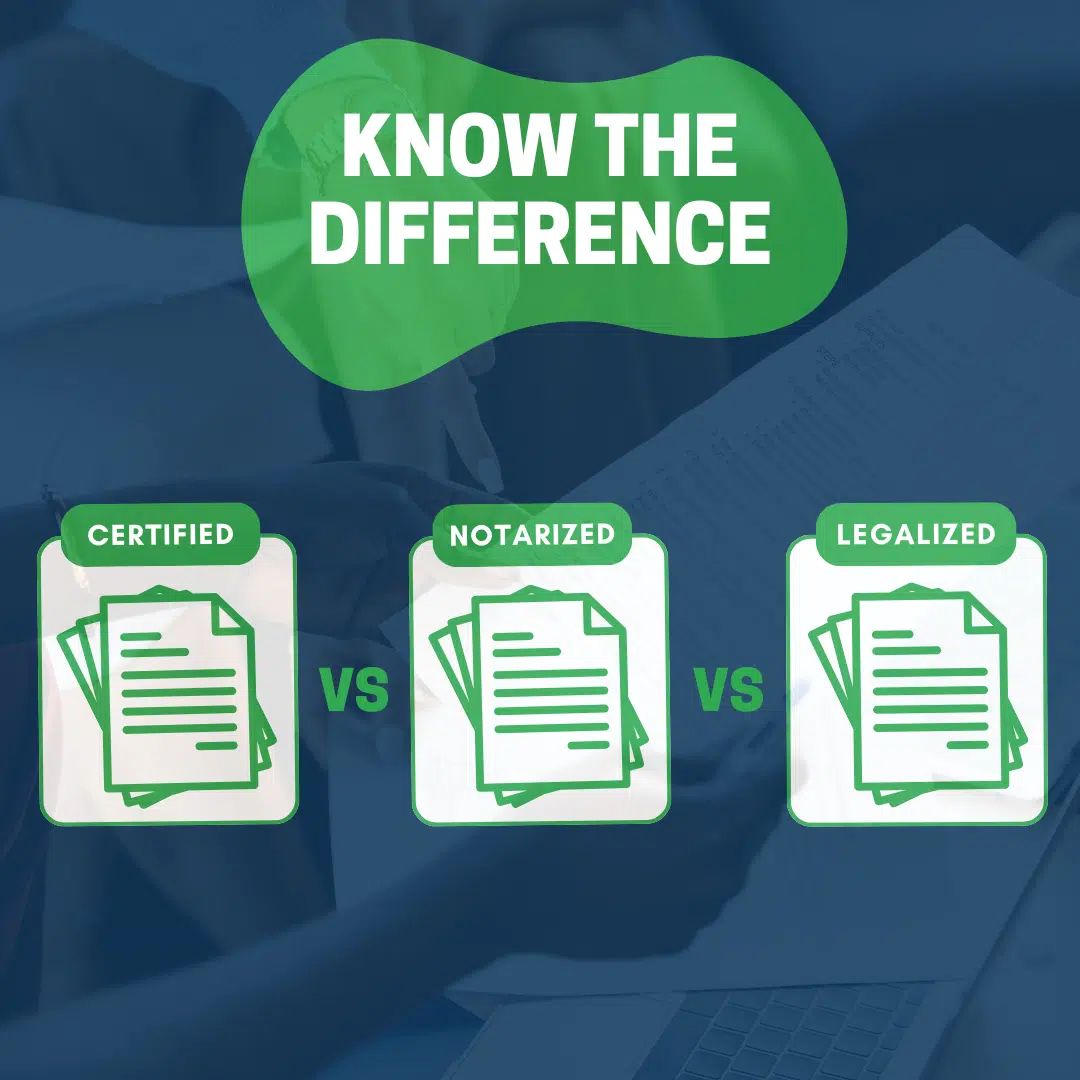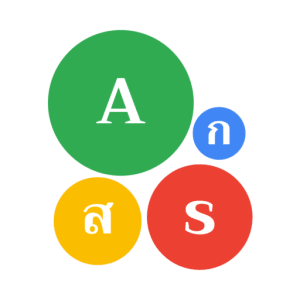
- Sawadee Translations
- Guides
- No Comments
When dealing with official documents in Thailand, understanding the difference between certified translations, legalized translations, and notarized translations is crucial. The wrong type of translation can lead to delays, rejections, or extra costs. This guide will explain these three types of translations, their requirements, and when you need each one.
What is a Certified Translation in Thailand?
A certified translation is a document that has been professionally translated and includes a declaration of accuracy, usually stamped and signed by a recognized translation agency or sworn translator. In Thailand, certified translations are often required for official use, including embassy submissions, visa applications, and government paperwork.
When Do You Need a Certified Translation?
- Visa and Immigration Applications (e.g., work permits, long-term visas, residency applications)
- Embassy Requirements (e.g., translating marriage affidavits, police clearance certificates)
- University and Academic Submissions (e.g., translating diplomas, transcripts)
- Legal Contracts and Business Documents (e.g., company registration documents, agreements)
Key Features of a Certified Translation:
✅ Performed by a professional translation agency or accredited translator
✅ Includes an official certification statement, stamp, and signature
✅ Recognized by government offices and embassies in Thailand
✅ Does NOT involve the Ministry of Foreign Affairs (MFA) or a notary
What is a Legalized Translation in Thailand?
A legalized translation is a certified translation that has been verified and stamped by the Thai Ministry of Foreign Affairs (MFA). This step ensures that the document is officially recognized and can be used for legal purposes abroad.
When Do You Need a Legalized Translation?
- Marriage Registration for Foreigners in Thailand (e.g., translating affidavits of freedom to marry)
- Using Thai Documents Overseas (e.g., birth certificates, marriage certificates, business licenses)
- Thai Citizenship and Immigration Applications (e.g., proving relationships or identity abroad)
- Business and Trade Agreements (e.g., exporting Thai corporate documents for foreign use)
How to Legalize a Translation in Thailand:
- Obtain a Certified Translation – Your document must be translated and certified by a recognized agency.
- Submit the Translation to the MFA – The Ministry of Foreign Affairs in Bangkok verifies the document’s accuracy.
- Receive MFA Approval and Stamp – Once verified, your translation is officially legalized and can be used internationally.
Key Features of a Legalized Translation:
✅ Must be certified first before submission
✅ Stamped and approved by the Ministry of Foreign Affairs (MFA) in Bangkok
✅ Required for international legal use
✅ Can take 2-5 business days depending on urgency
What is a Notarized Translation in Thailand?
A notarized translation is a translation that has been signed and stamped by a Notary Public. Unlike certified or legalized translations, a notarized translation does not verify the accuracy of the content but simply confirms the identity of the translator or the person signing the document.
When Do You Need a Notarized Translation?
- Certain Embassy or Immigration Applications (e.g., US, UK, and some European embassies require notarization)
- Business Transactions and Power of Attorney (e.g., legal documents requiring notarization for international business dealings)
- Court or Legal Proceedings (e.g., when submitting documents for lawsuits or official testimony abroad)
How to Get a Notarized Translation?
- Get the Document Translated and Certified – The translation must be performed by a professional service.
- Visit a Notary Public in Thailand – A licensed notary will stamp and verify the translation.
- Submit the Notarized Translation as Required – Use the document for embassy, legal, or business purposes.
Key Features of a Notarized Translation:
✅ Signed by a Notary Public (NOT the Ministry of Foreign Affairs)
✅ Confirms the identity of the translator, not the accuracy of the translation
✅ Required for specific embassy, business, or legal cases
✅ Faster process than legalization (can be done in 1 day)
Certified vs. Legalized vs. Notarized: Which One Do You Need?
| Translation Type | Certification Required? | MFA Approval? | Notary Required? | Purpose |
|---|---|---|---|---|
| Certified Translation | ✅ Yes | ❌ No | ❌ No | General official use (immigration, visas, business, education) |
| Legalized Translation | ✅ Yes | ✅ Yes | ❌ No | Documents used internationally, legal registrations, embassy use |
| Notarized Translation | ✅ Yes | ❌ No | ✅ Yes | Business transactions, legal cases, some embassies |
Get the Right Translation for Your Needs
If you’re unsure which type of translation you need, consider the following:
- If you’re submitting a document in Thailand → You likely need a certified translation.
- If you need the document for international legal purposes or getting married in Thailand → You need a legalized translation from the MFA.
- If an embassy or business asks for notarization → You need a notarized translation.
For professional certified, legalized, or notarized translations, contact Sawadee Translations today. Our expert team ensures your documents meet the exact requirements of embassies, government offices, and international organizations.






